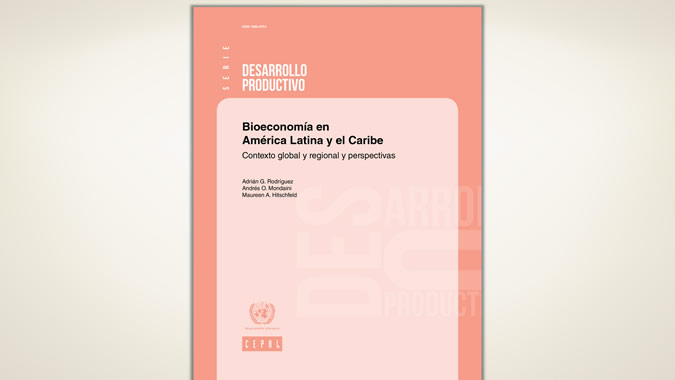What is the Bioeconomy and How Developed is it in Latin America and the Caribbean
Work area(s)
This concept has received little public policy attention from countries in the region, despite the contribution it could make toward achieving the SDGs, according to a new study by ECLAC.

“There is great potential in Latin America for developing the bioeconomy as an alternative for diversifying production and adding value in the rural setting, especially in the agricultural and agroindustrial sectors,” indicates a new study published by the Economic Commission for Latin America and the Caribbean (ECLAC), entitled Bioeconomía en América Latina y el Caribe: contexto global y regional y perspectivas (Bioeconomy in Latin America and the Caribbean: Global and Regional Context and Perspectives).
Despite this potential, the concept has received little public policy attention from countries in the region, according to ECLAC. “Unlike in other regions, particularly Europe, at present there are no strategies devoted to the bioeconomy,” stresses the document, which is divided into five sections.
The first section examines the characteristics of the bioeconomy; the second highlights the integrating nature of the concept and its links to the 2030 Agenda for Sustainable Development; the third assesses its potential and the institutional framework in Latin America and the Caribbean; the fourth presents information on the economic importance of the bioeconomy (based on an analysis of the composition of exports from 32 countries in the region); and the final section identifies opportunities and challenges.
According to the document, a bioeconomy is a) an economy based on the production and consumption of goods and services derived from the sustainable direct use and transformation of biological resources, including biomass waste generated in the processes of transformation, production and consumption; b) leveraging knowledge of biological systems, principles and processes; and c) the technologies applicable to the knowledge and transformation of biological resources and to the emulation of biological processes and principles.
The document cites three examples of biological resources that can serve as the basis for developing national and regional bioeconomic strategies: biodiversity (including agro-biodiversity), especially in megadiverse countries with unique ecosystems; the capacity to produce biomass for diverse uses, in addition to food; and the availability of agricultural and agroindustrial waste.
“Taking the 2030 Agenda as a point of reference, the bioeconomy is an alternative for the smart specialization of territories, for innovation and sustainability-focused structural change, as well as for strengthening agricultural and rural development policies,” underlined the study prepared by Adrián G. Rodríguez, Chief of the Agricultural Development Unit of ECLAC’s Division of Production, Productivity and Management, in collaboration with Andrés Mondaini and Maureen Hitschfeld, Research Assistants from the same Unit.
Related content
Related project(s)
Contact
Public Information Unit
- prensa@cepal.org
- (56 2) 2210 2040
